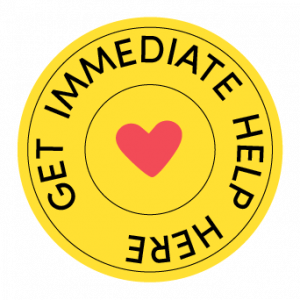Relationships

There are all kinds of relationships in life—romantic, platonic, professional, and more.
College may be the first time you’ve had to create and navigate new relationships without the help of people you’ve known your whole life.
It can be scary, but it can also be a lot of fun.
As you add new friends and maybe romantic relationships to your life, it’s important to make sure they are healthy connections you feel good about and enhance your time at college, instead of taking away from it.
Even the best relationships come with disappointment, conflict, or strain from time to time, and college is a place where you are learning to navigate these issues. Sometimes all that is needed is to improve your communication. Other issues may need a different approach. Here is JED’s guide to common relationship problems and how to deal with them.
Some relationships are not worth maintaining, because they are toxic, abusive, or damaging to your emotional or physical health and safety. It can feel scary to leave a relationship—especially if you are experiencing abuse—but it’s important you do, and that you learn how to do so in a way that maximizes your safety. Love Is Respect offers resources specific to LGBTQ students on recognizing abuse and leaving unhealthy relationships.
It can be hard to know the right way to support a friend who is struggling. JED put together a thorough guide to how and when to start a conversation with a struggling friend, and NAMI created this useful infographic on signs to look for and things to say. Seize the Awkward also offers all kinds of conversation starters and encouragement to speak up.
Dorm Life

If you are living on campus, chances are you’ll also need to adjust to living in a dorm and sharing your space with a roommate. Living in tight quarters with little privacy can be challenging, especially if this is the first time you or your roommate(s) have shared a room. JED offers these tips on preparing for life with a roommate and having good communication.
RAs, or resident advisers, are a great resource for concerns you have about living in the dorm. If you have issues with your roommate, are having trouble connecting with other students on your floor, or have any other questions or concerns about adjusting to campus, RAs are a great and accessible option for seeking help. They have been through many of the same experiences you are having, and they’ve been trained to assist with dorm life and roommate challenges.
Staying Healthy

There is so much to balance at school. Between classes, studying, extracurriculars, work, and socializing, it can sometimes feel hard to center yourself and focus on your own health.
But that is a critical skill to develop now. It will serve you through college and well beyond.
Have a schedule
Bring routine into your life as much as you can (times when you study, when you socialize, your bedtime, etc.).
Prioritize sleep
Sleep is one of the foundations of good physical and mental health. There will be times when you stay up late, but aim for seven to nine hours each night as often as possible. Here are some tips from the University of North Carolina at Chapel Hill for achieving that goal.
Move your body
This could be a walk through a park on campus, participating in a school or intramural sport, or organizing impromptu dorm dance parties. Many colleges and universities offer exercise classes at their gyms. Find some kind of movement you enjoy doing and make it a routine. Physical activity has an incredibly positive impact on mental health.
Find your support network
As you make friends and get to know professors and other staff on campus, think about which of them you could turn to with a problem—and then reach out to them if you start to struggle.
Make the time
Find creative or contemplative activities that center you and connect you to yourself, such as listening to music, meditating with an app, journaling, reading for pleasure (maybe outside on a blanket!), and coloring or other crafts. Making time for these things regularly will help lower your stress level, and they can be a great tool to turn to when you are feeling overwhelmed.
JED and PINK have created an online hub, You Are Here, with all kinds of mindfulness and other grounding practices you can use to press pause, lower stress, and connect with yourself.
If you are struggling emotionally or you are worried about a friend or roommate, there is good information, tips, and resources for getting mental health support in Getting Support When You Need It.







